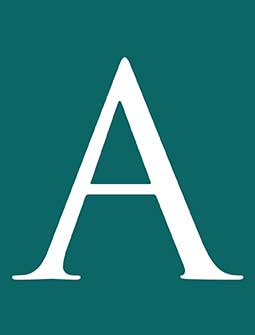
As part of its response to the coronavirus pandemic, the IRS announced Tuesday in Notice 2020-29 that it is permitting increased flexibility for midyear elections under a Sec. 125 cafeteria plan during calendar year 2020 for employer-sponsored health coverage, health flexible spending arrangements (FSAs), and dependent care assistance programs.
Elections under a Sec. 125 cafeteria plan generally are irrevocable and must be made before the first day of the plan year, except as provided in Regs. Sec. 1.125-4. Under that regulation, a Sec. 125 cafeteria plan may permit an employee to revoke an election during a period of coverage and to make a new election under certain circumstances, such as if the employee experiences a change in status or there are significant changes in the cost of coverage. Because many employees will not meet that standard as a result of the pandemic, the IRS decided to give employers the option to allow employees to change their elections midyear.
Therefore, for midyear elections made during calendar year 2020, a Sec. 125 cafeteria plan may permit employees who are eligible to make salary reduction contributions under the plan to:
- For employer-sponsored health coverage, (1) make a new election on a prospective basis if the employee initially declined to elect employer-sponsored health coverage; (2) revoke an existing election and make a new election to enroll in different health coverage sponsored by the same employer on a prospective basis; and (3) revoke an existing election on a prospective basis, provided that the employee attests in writing that the employee is enrolled, or immediately will enroll, in other health coverage not sponsored by the employer;
- Revoke an election, make a new election, or decrease or increase an existing election applicable to a health FSA on a prospective basis; and
- Revoke an election, make a new election, or decrease or increase an existing election regarding a dependent care assistance program on a prospective basis.
Notice 2020-29 also gives increased flexibility for grace periods to apply unused amounts in health FSAs to medical care expenses incurred through Dec. 31, 2020, and unused amounts in dependent care assistance programs to dependent care expenses incurred through Dec. 31, 2020. For amounts that are unused and that remain in a health FSA or a dependent care assistance program under the Sec. 125 cafeteria plan as of the end of a grace period or plan year ending in 2020, a Sec. 125 cafeteria plan may permit employees to apply those unused amounts to pay or reimburse medical care expenses or dependent care expenses, respectively, incurred through Dec. 31, 2020.
Finally, the relief in Notice 2020-15 regarding high-deductible health plans (HDHPs) and COVID-19 expenses and the relief enacted in Section 3701 of the Coronavirus Aid, Relief, and Economic Security (CARES) Act, P.L. 116-136, allowing telehealth and other remote care services to qualify as expenses reimbursable by HDHPs, may be applied retroactively to Jan. 1, 2020.
Permitted FSA carryover now $550
In Notice 2020-33, also issued Tuesday, the IRS modified Notice 2013-71 to increase the carryover limit from $500 to $550 of unused amounts remaining as of the end of a plan year in a health FSA under a Sec. 125 cafeteria plan. That amount may be carried over to pay or reimburse a participant for medical care expenses incurred during the following plan year. The increase reflects indexing for inflation, and this indexing parallels the indexing that applies to the limit on salary reduction contributions under Sec. 125(i). The $550 limit is 20% of the current inflation-adjusted $2,750 limit on health FSA contributions.
Notice 2020-33 also allows a health plan to reimburse individual insurance policy premium expenses incurred before the beginning of the plan year for coverage provided during the plan year. This provision will assist with implementing individual coverage health reimbursement arrangements.
For more news and reporting on the coronavirus and how CPAs can handle challenges related to the pandemic, visit the JofA’s coronavirus resources page.
For tax-related resources, visit the AICPA’s Coronavirus (COVID-19) Tax Resources page.
— Sally P. Schreiber, J.D., (Sally.Schreiber@aicpa-cima.com) is a Tax Adviser senior editor.
Leave a Reply